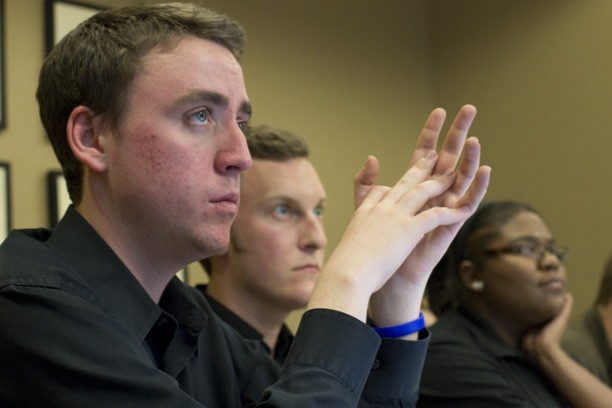Three finalists have been selected for a student regent position and, pending Gov. Jan Brewer’s final decision, one of them will assume the position in spring 2013.
The Arizona Daily Wildcat caught up with the finalists to find out what they plan to do as student regents. UA students James Allen, a first-year MBA student, Alan Thomas Kohler, a doctoral student in second language acquisition and teaching, and Christopher Nagata, a graduate student studying business administration and public health, each answered a couple of questions regarding what they would do if they were chosen to serve as student regent for the Arizona Board of Regents.
How would you plan to speak on behalf of students?
Allen: I think what’s really important and something I’d really like to see with the student regent is an active effort to reach out to student body presidents and clubs, or seek out opportunities where there could be a specific student group in need. I think a good student regent needs to be active in outreaching and actually approaching groups and seeking out opportunities and being available.
Kohler: In terms of speaking on behalf of the students of Arizona, I think the most important way to give the students a voice is to first listen to what they are saying. I believe in the power of aggregating knowledge, and for me that means keeping as close to the student bodies of our universities as possible.
Nagata: I think the first part is knowing what they want to be heard on, what their priorities are and what their issues are. In order to ascertain that sort of information, you have to meet with student leadership, student representatives, just students at large to get a sense for what their priorities, concerns and needs are. At that point, it’s aggregating that information and then going to speak with board or policy leaders, elected officials or university administration.
What specific things would you work on as a student regent?
Allen: With students, the enterprise works for the education of students, but too often it forgets the individual stories and it forgets the individuals. I think sometimes you can get so caught up in the details and the high-level decision-making that you don’t remember how hard it is to get through college and how hard it is to pay for college. I think that, as a system, it really needs to be addressed.
I also think we have to do a better job of marketing what it is we do as a system. You know, who is it we help, what are we developing, how are we making ourselves relevant to the people of Arizona who fund these institutions.
Kohler: Some of the ideas and concerns that I’ve been hearing repeated recently deal, interestingly, with improvements that can and should be made to increase affordability for students. For example, child care on campus is a major concern of graduate and professional students across the state, and I for one would be willing to work hard to improve the affordability and access to better child care as a way to help ease the burden on a lot of student families. In other conversations I’ve had, I’ve talked a lot about the use of online and computer technology to find innovative ways to both improve the student experience and possibly defray some of the costs of education.
Nagata: I think the two things right now that I would like to see is us continue to advance toward the strategic initiative of the 2020 vision set by ABOR. Really, that’s framing the university system as an enterprise and working to increase retention and graduation rates to serve the needs of the university system and the state. The developing Phoenix biomedical campuses are also a deep interest of mine and they are something I look forward to being engaged in if I do have the opportunity to serve on the board.
This Q&A has been edited for length and clarity.









